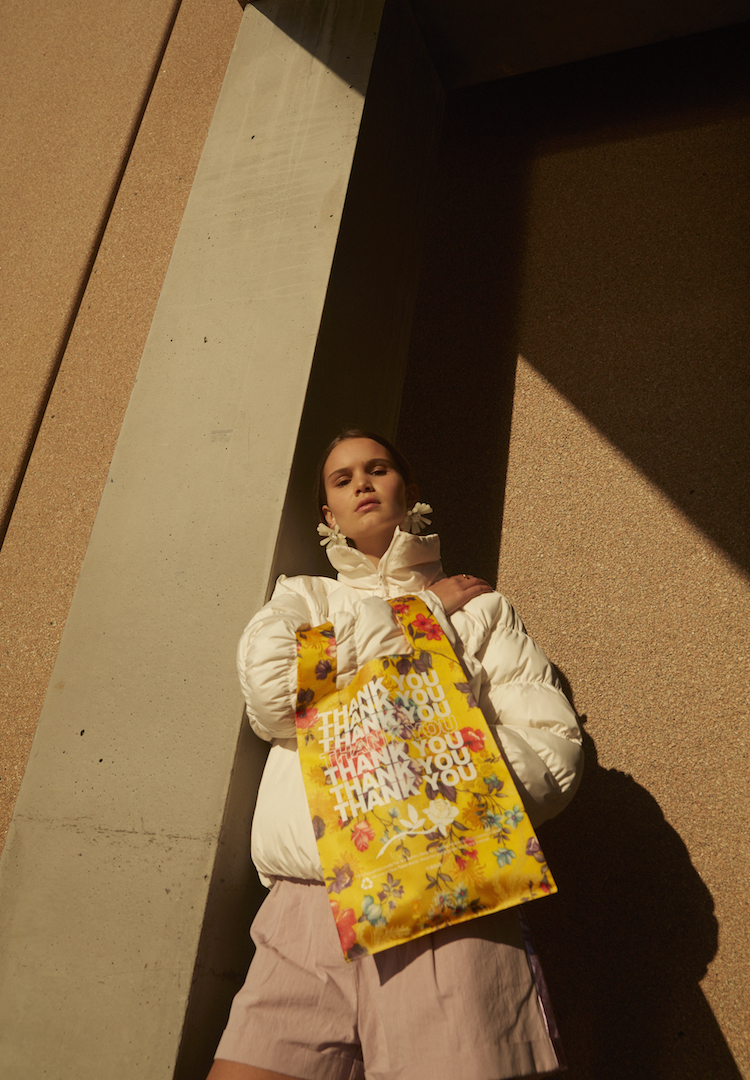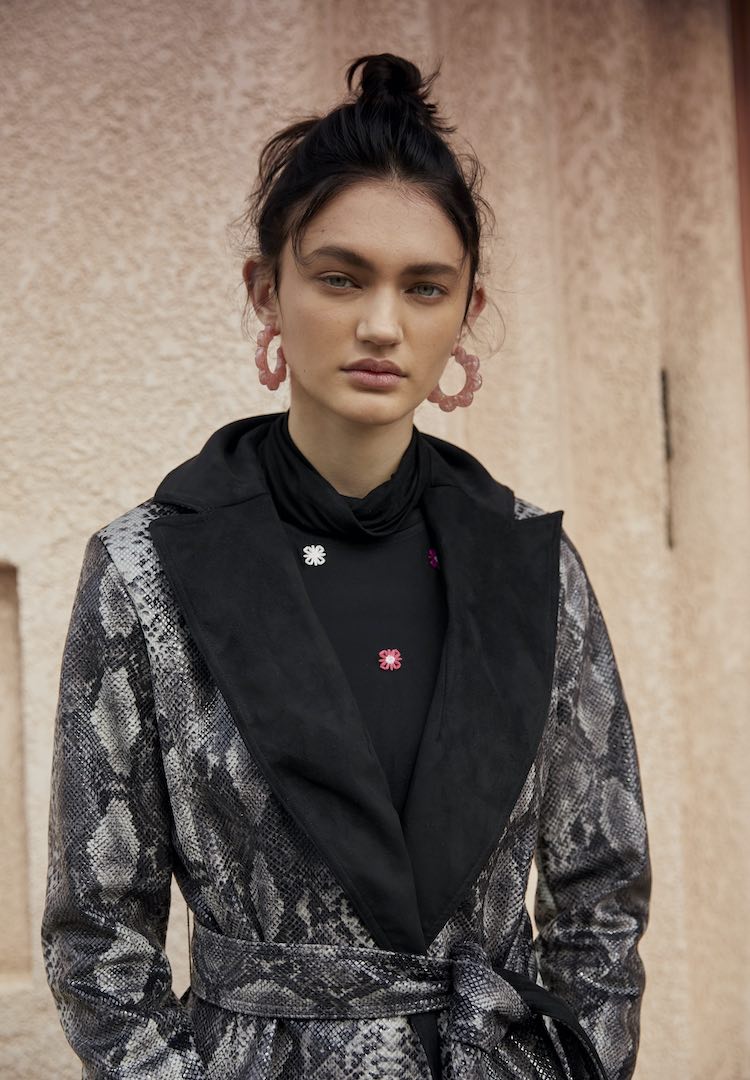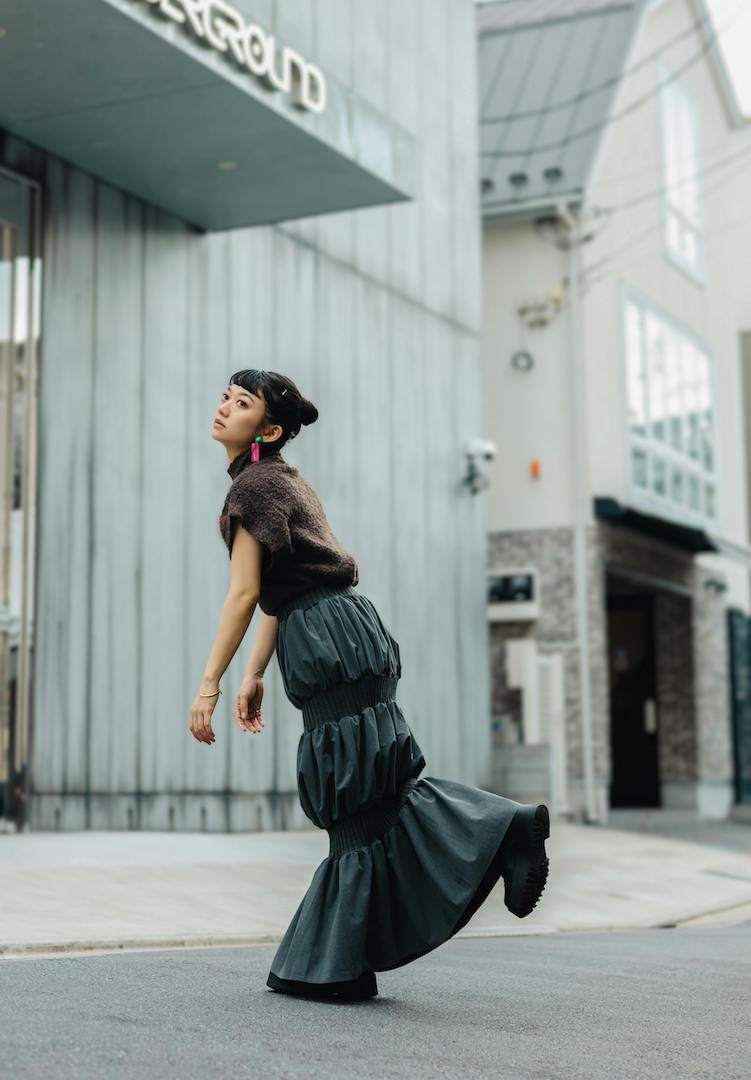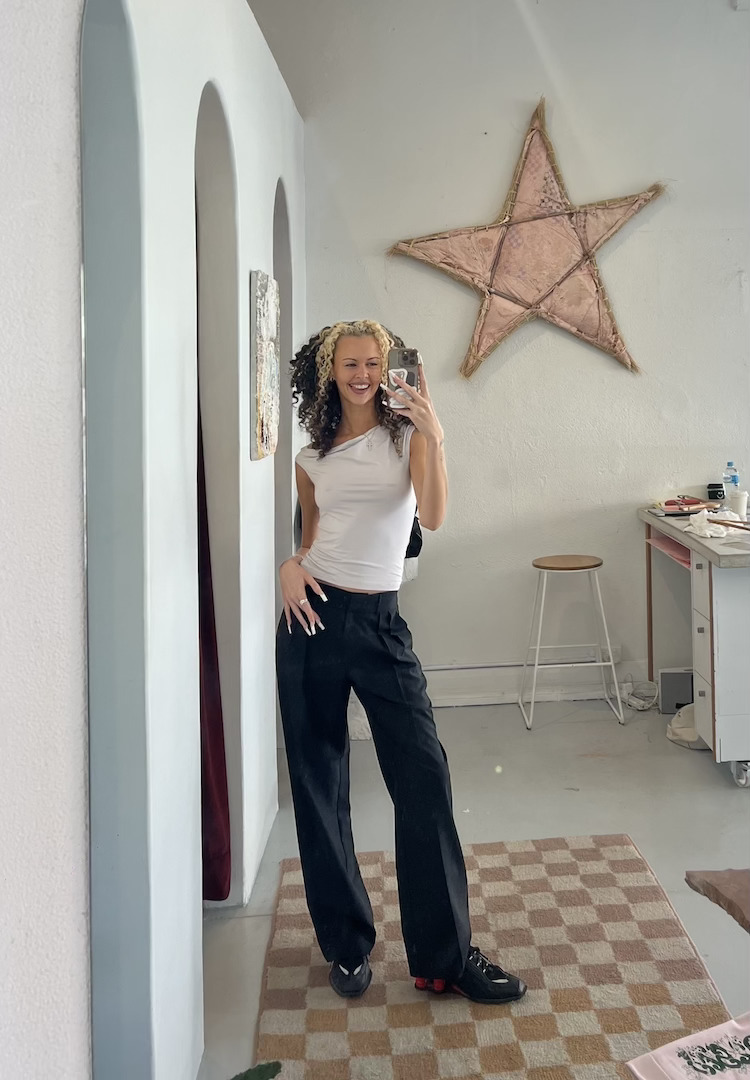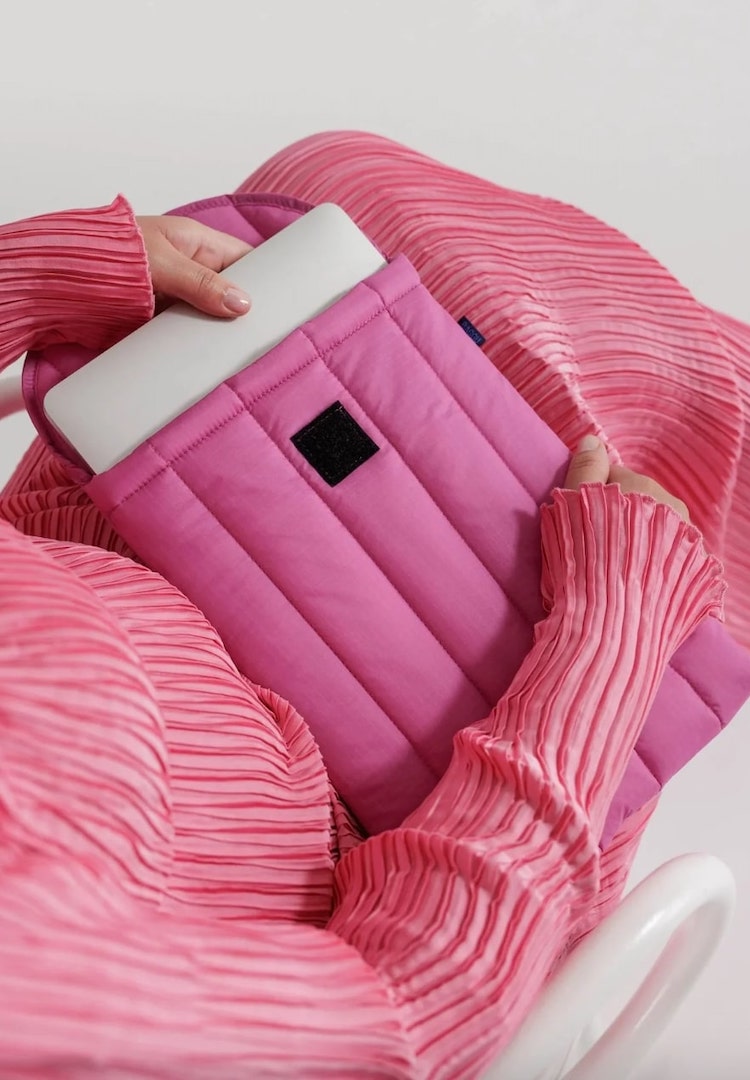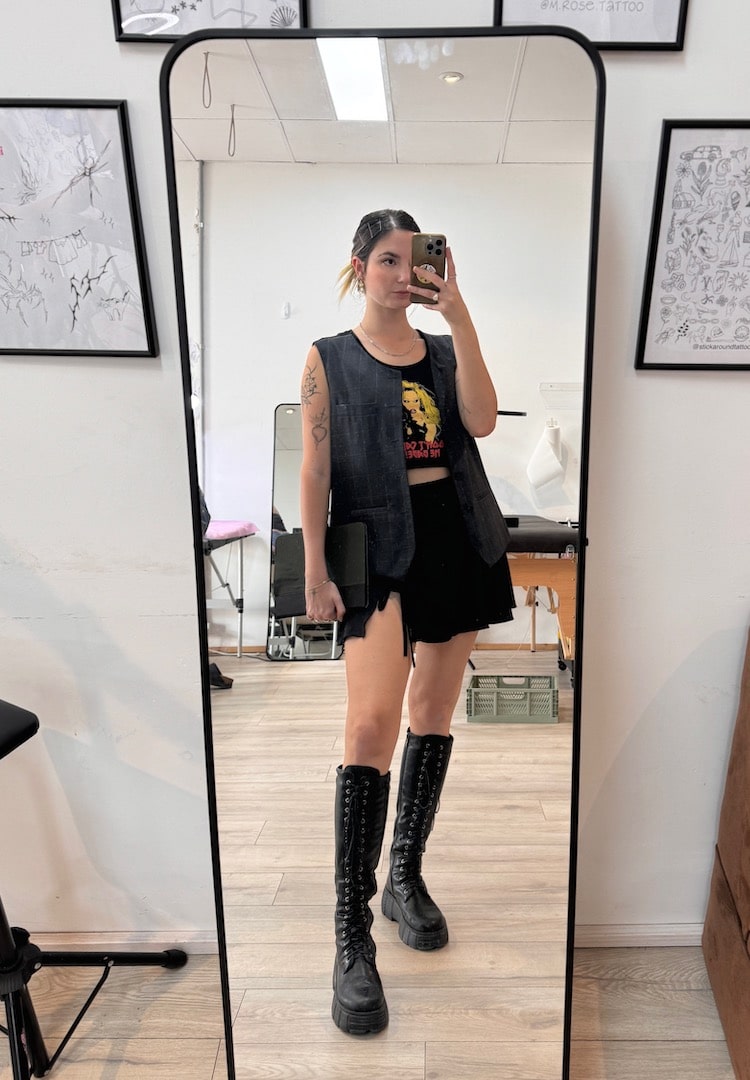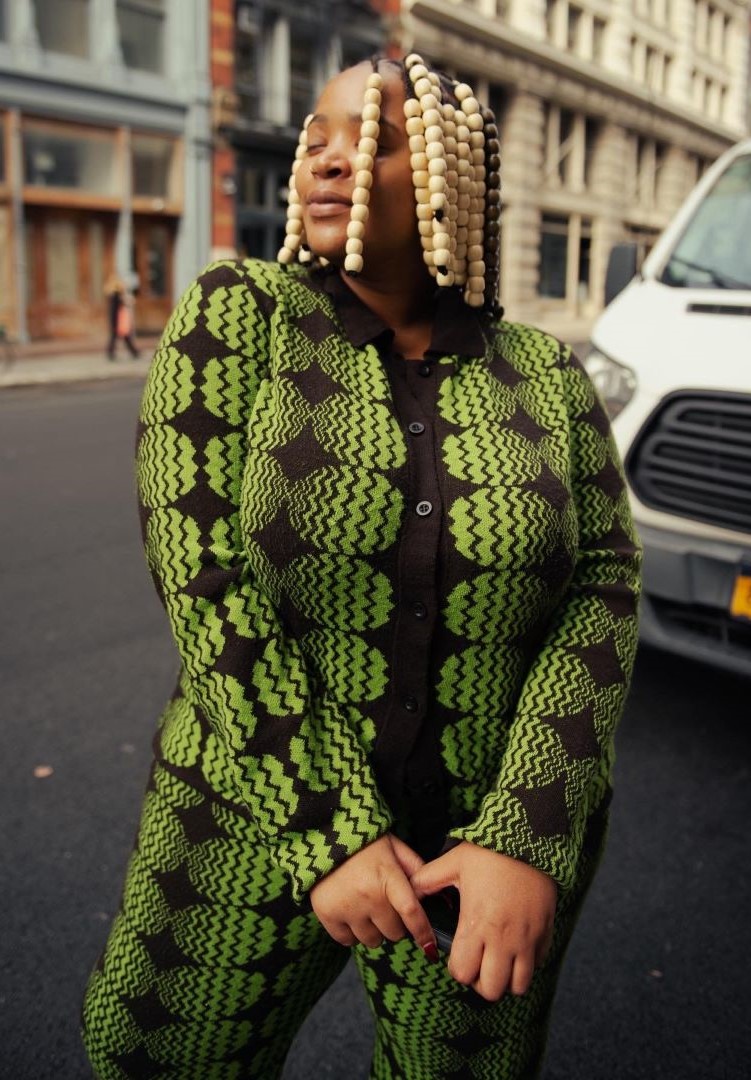This is how you move from a corporate career into the fashion industry
PHOTOGRAPHY BY JASON HENLEY
WORDS BY ALYCE GREER
From boardroom to studio.
You’re reading this from your grey office cubicle (or WFH set up) where your 9-5 consists of emailing disgruntled customers, pouring over mind-numbing spreadsheets, or worst of all, dodging Zoom team drinks.
In between, you dream of working in fashion. You wish you could burn your skirt suit and never look at another photocopier EVER AGAIN. You feel your talents are wasted – as is your knowledge of pre-fall fashion and the $600 boots you recently purchased.
Don’t worry, all is not lost. Megan Cross, a recruitment consultant at Jivaro that specialises in fashion design and buying, is back to teach us how to break into the notoriously competitive fashion industry. And more importantly, how to tell if you have a serious *passion for fashion* or just really like clothes.
Weigh up the important stuff first
Obviously, salary is number one. The industry pays well once you are experienced, but even if you’ve got loads of experience and a great reputation in another industry, you will have to start over. That means you’ll also have to consider your financial commitments. It’s easy to say, “It’s fine I’ll do anything!” but keep in mind it takes time to build a career and you’ll be starting at the bottom of the food chain.
That said, it all comes down to job satisfaction – you could be a director of a company and be miserable, or you could be an assistant for a designer and be the happiest you’ve ever been. If it’s something you’re genuinely passionate about, you will eventually progress, so think of it as a step back to take five steps forward.
Figure out what you actually want to do in fashion
Fashion is an extremely broad industry. While a designer is purely creative, a planner works in numbers and profit. They’re both still in fashion, but sitting at completely different ends of the spectrum. What is it that you actually want to do? While you might love shopping and styling, actually working in the fashion industry is fast-paced, cut-throat, and requires a sense of resilience.
Find transferable skills and draw attention to them
At the end of the day, when you’re sending your resume, the recruiter or employer knows nothing about you – whatever you’ve written down is all they’ll know you’re capable of. Our job isn’t to dig deep and try to figure out if that particular quality is transferable.
Have a look at the fundamental qualities of a role. For example, in buying, you need strong negotiation skills and the ability to forecast trends. What are you doing in your current role that crosses over? Make lists, find similarities and make these obvious in your CV.
Test the waters with a short course
These days, there are so many short courses you can enrol in. You don’t need to complete a bachelor’s degree to gain knowledge in an area anymore, and there are so many short courses you can take part in to test the waters, from fashion styling to design to buying.
At the end of the day, you don’t know if you really like something until you actually try it. You can do as much reading and research as you like, but it’s a different game when you’re actually doing something hands-on. A short course is a great way to find out what you actually connect with.
Build a portfolio or Instagram to show your style
Even a dedicated Instagram account can go such a long way. Blogs have dropped off a bit in terms of popularity (thanks, Insta) but they’re definitely still a super effective way to show your capability and your style. Start something that helps you to unleash your creativity and acts as a platform for your work!
Best of all, it doesn’t even have to be paid work – you’re not doing it for financial gain, you’re just doing it to show your capability in that field. You’ll need to prove yourself to an employer, and an easy way to do this is to produce some articles or build a portfolio. If you haven’t got actual work experience, it’s really beneficial.
Network, schmooze and take people out for coffee
Ultimately, the fashion industry is all about who you know. When you’re in a highly competitive market and you’ve got a gateway in, it’s going to be a lot easier for you than it may be for someone who has no connections at all. Utilise those connections and try to speak to as many people as possible.
Even then, you need to make your own call as to whether it’s right for you. Don’t completely rely on what other people say – it’s your own experience and you’ve got different strengths and weaknesses to them, so your experience will be different regardless. Another idea is to look online for relevant events (like fashion week) because networking is key! If you end up meeting someone and having a great conversation who knows what it could lead to?
Then (and only then) may you apply
Now you’ll definitely be in a good place to start applying for jobs. My advice? The more you apply for, the more you get yourself out there, and the more success you’ll have. You probably won’t see much of a return applying for one or two jobs.
Follow the brands on LinkedIn and look for job vacancies there. While fashion doesn’t have the world’s biggest presence on LinkedIn, brands still advertise there. I’d also suggest connecting with the appropriate people on LinkedIn.
For example, if you want to be a designer for a certain brand, search for the design manager and reach out to them! It’s a good way to get your name noticed. Of course, check out Seek and any internal careers pages on brands’ websites, too.
When it comes to applying for jobs, emails are great but you need to be picking up the phone and speaking with whoever it is you’re targeting. I would apply via Seek or email across your resume and portfolio, then call to follow up. Ask if they have a few minutes to run through your application. It’s a great way to stand out. It’s really easy to ignore an email, but not so easy to ignore a phone call.
Is now a dumb time to follow my dream?
Despite COVID, a lot of brands are predominantly online, and other brands are in the activewear and sportswear space and have done significantly well during this time. So if you’re interested in those areas, go for it – they’re hiring!
Otherwise, you need to use common sense. No, it’s not the easiest time to get a job, regardless of what industry you work in, so if you’re in a stable job I probably wouldn’t recommend quitting now and trying to find something else. The general rule is to always find something else first.
Alyce is a contributing writer for Fashion Journal and the director and head writer at Bossy, a Melbourne-based copywriting and content studio. You can find Bossy here and here.
Looking to step up to a career in fashion? Each week we send a wrap of industry jobs straight to your inbox. Enter your details below and we’ll keep you in the loop, or browse current openings here.

